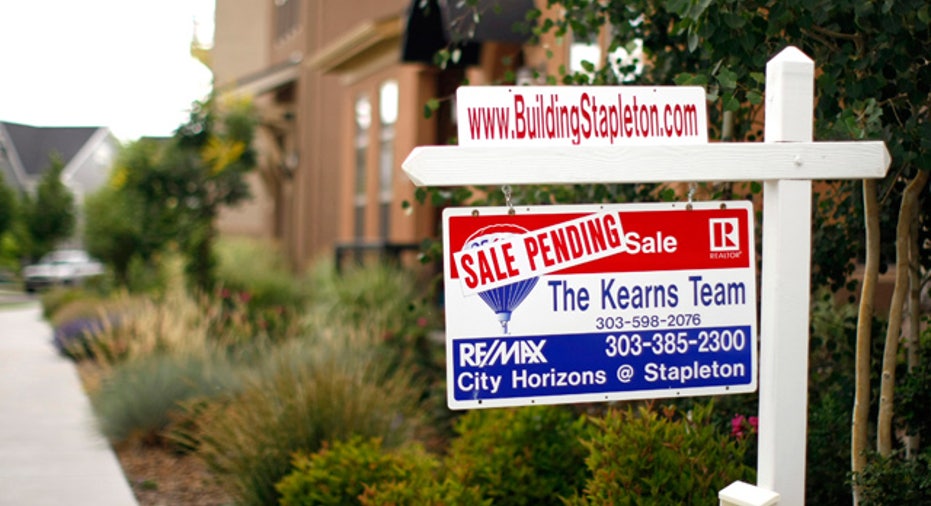Buy a Home Without Cash From Parents

First-time homebuyers traditionally have relied on parents and grandparents to help with the down payment and closing costs. But today, many older people aren't in a financial position to offer such assistance to younger family members.
So how can would-be buyers afford their first house or condominium on their own? For many, the answer involves a combination of personal savings, a low-down payment loan with mortgage insurance, seller-paid closing costs or a first-time homebuyer down payment assistance program.Stock and savings
Dan Nainan, a comedian and voice-over actor in New York, used cashed-in corporate stock options and personal savings to buy a 750-square-foot co-op apartment in Manhattan this year.About half of his $85,000 down payment and closing costs came from stock options he sold five years ago. The rest came from a lifestyle that he says includes a lot of library books and dining-out coupons, but no cars, cocktail hours or cable television.
"It's important to live well," he says, "but also watch your expenses. It's possible to do both."Nainan, 29, says he never expected homebuying help from his parents and while the prospect of buying a home was "somewhat daunting," he still felt confident of his ability to achieve his goal.
"I had to pay for my own college by myself, and I had to pay for my first car," he says. "A lot of my friends -- their car was paid for, their college was paid for and their home was paid for, but my dad has always stressed for my sister and myself to do things independently."
Down Payment Help
Homebuyers who aren't in a position to save tens of thousands of dollars typically turn to loan programs that allow a small down payment relative to the home's purchase price.
A loan insured by the Federal Housing Administration, known as an FHA loan, requires a down payment of only 3.5%. Granted, 3.5% isn't 0%, but it's a relatively modest sum compared with the property's value and can be affordable in a low-cost housing market.
All FHA loans involve extra costs for mortgage insurance, which protects the lender if the borrower defaults on the loan.
Private mortgage insurance, called PMI, also allows buyers to buy a home with a small down payment. Today, a loan with PMI might even be cheaper than an FHA loan, according to Jay Dacey, a mortgage broker at Metropolitan Financial Mortgage Co. in Minneapolis. PMI can be paid monthly or wrapped into a higher interest rate.
Or PMI can be financed as part of the loan amount. Dacey cites a hypothetical example of a $4,000 premium added to the loan. "Say you borrowed $200,000," Dacey says. "That extra $4,000 (for PMI) will wind up on the loan side, so that's $204,000. That's why it's called a 'single-financed.' And then, you never have to pay a monthly mortgage insurance premium."
First-time homebuyer down payment programs, offered by local and state housing agencies, extend grants and loans to first-time homebuyers who meet the guidelines. Greg Cook, a loan consultant at Guild Mortgage Co. in Temecula, Calif., is a fan of the programs in his area. Dacey is less enthusiastic, pointing out these programs tend to have strings attached, such as income restrictions and payback requirements.
Buyers and sellers traditionally share the closing costs of a home sale. But sometimes a seller will pick up most or all of the buyer's costs as part of the deal. For example, a bank that owns a property outright due to a foreclosure or agrees to take a loss on the seller's mortgage in a short sales oftentimes will pay the buyer's closing costs, Cook says.
Still, buyers typically need some money of their own.
"If nothing else," Cook says, "they have to have enough to write the earnest money check."That initial deposit can amount to several thousand dollars depending on the home's purchase price.
First-Time Buyer Tips
Regardless of whether Mom and Dad make a contribution, prospective buyers should meet with a lender upfront to find out how much they can borrow. Buyers also should clean up any errors on their credit report and try to build up their emergency savings in addition to their down payment and closing cost funds, loan officers say.
"It's not a bad thing to have too much money at closing," Cook says.
Nainan says buyers should educate themselves about credit scores, pay off their credit card bill every month, and use online budgeting services to track their expenses and increase their savings."I can't think of anything," he says, "that's more worth saving for than buying a home."



















